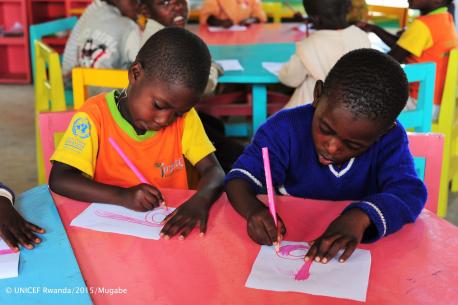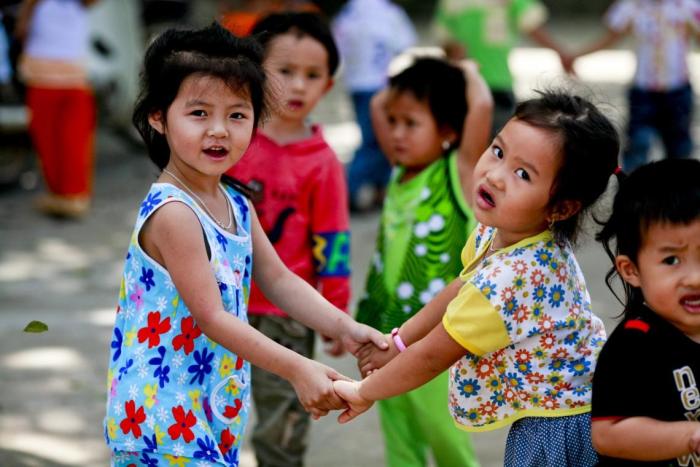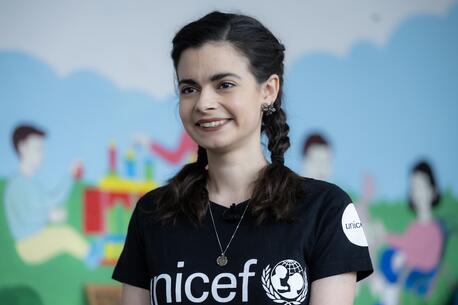
A No-Brainer: Advocating for Early Childhood Education
Join UNICEF in prioritizing both quality learning and protection to achieve early learning results around the world.
Early childhood education (ECE) or pre-primary education is one of the smartest investments countries around the world can make. As a core component of early childhood development in concert with nutrition and protective, loving care, early learning is critical to a child’s first 1,000 days when their brains are developing more rapidly than at any other time in life.
A recent report released by UNICEF shows that children enrolled in early education are more likely to stay in school and to attain minimum reading and mathematics competencies extending beyond primary school. Additionally, children who have attended pre-primary education are more likely to enter school on time, less likely to repeat grades, and more likely to complete primary and secondary school. A no-brainer, right?
Yet 175 million children — 50% of children worldwide — are currently missing out on pre-primary education during these vital early years. In low-income countries, nearly 8 in 10 children are missing out on this opportunity.
Unfortunately, toddler education remains deeply underfunded relative to other education levels, particularly in low- and middle-income countries, by both governments and international donors.

Vietnamese children playing as a part of UNICEF’s Integrated Early Childhood Development life-cycle approach. © UNICEF Viet Nam\Doan Bao Chau
Take Vietnam for example, where until recently 72% of preschool teachers were not trained in a “learn through play” approach or provided a curriculum centered around social-emotional learning. To address the quality of pre-primary education, UNICEF Viet Nam used thematic funding to help the Ministry of Education and Training pilot a “Social Emotional Learning” curriculum in 200 preschools in the poorest provinces, with high concentrations of ethnic minority students. With teacher training, on-the-job coaching, classroom environment improvements and empowerment of parents and caregivers, the pilot benefited 5,000 children. Because of that initial investment, the Ministry has revised its national early childhood education curriculum to be rolled out in 2021, benefiting 3.7 million preschool-age children each year. As a part of UNICEF’s strategy to advance early childhood development, UNICEF works with governments to adapt existing service delivery platforms to ensure that community-based child care, kindergartens and preschools include both quality learning and protection to achieve early learning results.
As demonstrated in the case of Vietnam, quality pre-primary educational programs can reduce the achievement gaps caused by poverty or other factors, and help the most vulnerable children keep up with their peers. In order to obtain those results, these programs must be developed and administered through an equity-based lens. Free pre-primary education for the poorest and hardest-to-reach children should be prioritized first, with the eventual goal of publicly funded preschools for all children. And quality of curriculums should not be sacrificed for rapidly expanded access.
The UNICEF report ‘A World Ready to Learn’ stresses that funding pre-primary programs does not come at the expense of other education efforts, but rather benefits each subsequent level of education. In that way, pre-primary education acts as a catalyst not only for individual learning outcomes, but also for strengthening a country’s entire national education system. Studies have even shown that children who participate in pre-primary education grow to be more productive participants in the labor force with their future earnings potential multiplied.
By sharing these success stories with policymakers, UNICEF USA and other coalition members at GCE-US are making the case for investment in ECE within overarching international education funding and programs. With this year’s release of the U.S. Government Strategy on International Basic Education, there is also increased acknowledgement and understanding within USAID and other U.S. Government agencies of the important role ECE plays in a child’s development.
Early investments in children — whether through learning opportunities, nutrition or consistent loving care — are all important to the healthy growth and development of children. By working with country governments to scale up evidence-based strategies and build the knowledge base and capacity of policy makers, UNICEF serves as a leader in early childhood development. Integral to that work is reaching ECE outcomes for all children. Together, a community of advocates, funders and implementers can support all children in accessing the quality universal pre-primary education that they deserve.
Top photo: Children draw, play and paint in "stimulation room" classrooms at their early childhood development (ECD) center in Bugarura Sector, Nyamagabe District, Rwanda. © UN0319240/Mugabe.


